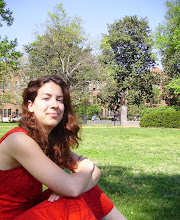 Ahmed is the master cook of this authentic Bengali meal. Though I was first a bit confused by the difference between "Bengali" and "Bangladeshi", a quick search taught me the latter epithet refers strictly to the nation. Bengali includes West Bengal, officially part of India. As this evening with Ahmed teaches me, he does feels the ties with India. We watch highlights of Bollywood movies, a compilation of mostly musical interludes with the megastar Shah Rukh Khan.
Ahmed is the master cook of this authentic Bengali meal. Though I was first a bit confused by the difference between "Bengali" and "Bangladeshi", a quick search taught me the latter epithet refers strictly to the nation. Bengali includes West Bengal, officially part of India. As this evening with Ahmed teaches me, he does feels the ties with India. We watch highlights of Bollywood movies, a compilation of mostly musical interludes with the megastar Shah Rukh Khan.Somehow, in my long and (I try) multicultural life, I have never really watched a Bollywood movie. I'm impressed by how they seduce me with their fantasy world. The songs and dances vary from the classic to the modern, in desolate landscapes and ornate palaces. Ahmed explains how in one classic dance sequ
 ence, every movement of the arms, the legs, the head means something. He can understand what the female character is trying to express to the male love interest without a word being spoken. Amazing! In all of the romantic sequences shown, the actors never kiss, though some touching of the naked female stomach obviously is allowed. Ahmed tells me nowadays some actors do kiss for real, but that it is bad for their image. You will see a tantalizing amount of 'almost' kisses, which to be fair, might be more interesting in the end.
ence, every movement of the arms, the legs, the head means something. He can understand what the female character is trying to express to the male love interest without a word being spoken. Amazing! In all of the romantic sequences shown, the actors never kiss, though some touching of the naked female stomach obviously is allowed. Ahmed tells me nowadays some actors do kiss for real, but that it is bad for their image. You will see a tantalizing amount of 'almost' kisses, which to be fair, might be more interesting in the end.Now, for the cooking...when I enter the communal kitchen in Ahmed's student house, I am impressed by the enormous pan of rice waiting for us. It is more than enough for the four people that will be enjoying this meal tonight. As Ahmed is leaving to return to Bangladesh in just a few days, I wonder who will eat it all. The rice is infused with
 yellow colour, and aroma, because of the saffron added. Ahmed obligingly poses with the Motor Polao rice at right. But the fish is more special. He calls it Pangas Mach. Googling that turns up nothing, though I do find Panga is a type of fish found in the Indian Ocean. It is serves with Dal Aloo Ghanto, a lentil sauce. The vegetables draped on top are called "Indian root" in Bengali, but Ahmed isn't sure of the English translation. It is all artfully served and quickly gobbled up by me, a young Dutch friend who is always up for Bengali food, and Shusil, our Nepali friend who prepared the second meal for this project.
yellow colour, and aroma, because of the saffron added. Ahmed obligingly poses with the Motor Polao rice at right. But the fish is more special. He calls it Pangas Mach. Googling that turns up nothing, though I do find Panga is a type of fish found in the Indian Ocean. It is serves with Dal Aloo Ghanto, a lentil sauce. The vegetables draped on top are called "Indian root" in Bengali, but Ahmed isn't sure of the English translation. It is all artfully served and quickly gobbled up by me, a young Dutch friend who is always up for Bengali food, and Shusil, our Nepali friend who prepared the second meal for this project. The same relaxed atmosphere is present now as at that evening more than a year ago. As we go to leave the dirty dishes in the kitchen, we find Ahmed's housemates preparing a meal including magic mushrooms...in general, in my world, stimulating company beats chemical stimulants any time! Although, in a way, maybe food counts as a stimulant as well? I do enjoy good company more in combination with good food!
The same relaxed atmosphere is present now as at that evening more than a year ago. As we go to leave the dirty dishes in the kitchen, we find Ahmed's housemates preparing a meal including magic mushrooms...in general, in my world, stimulating company beats chemical stimulants any time! Although, in a way, maybe food counts as a stimulant as well? I do enjoy good company more in combination with good food!To check out some Bengali recipes at home, try out these websites:
Bangali.net
A collection of Bengali recipes
Anita Pal's Bengali recipes




